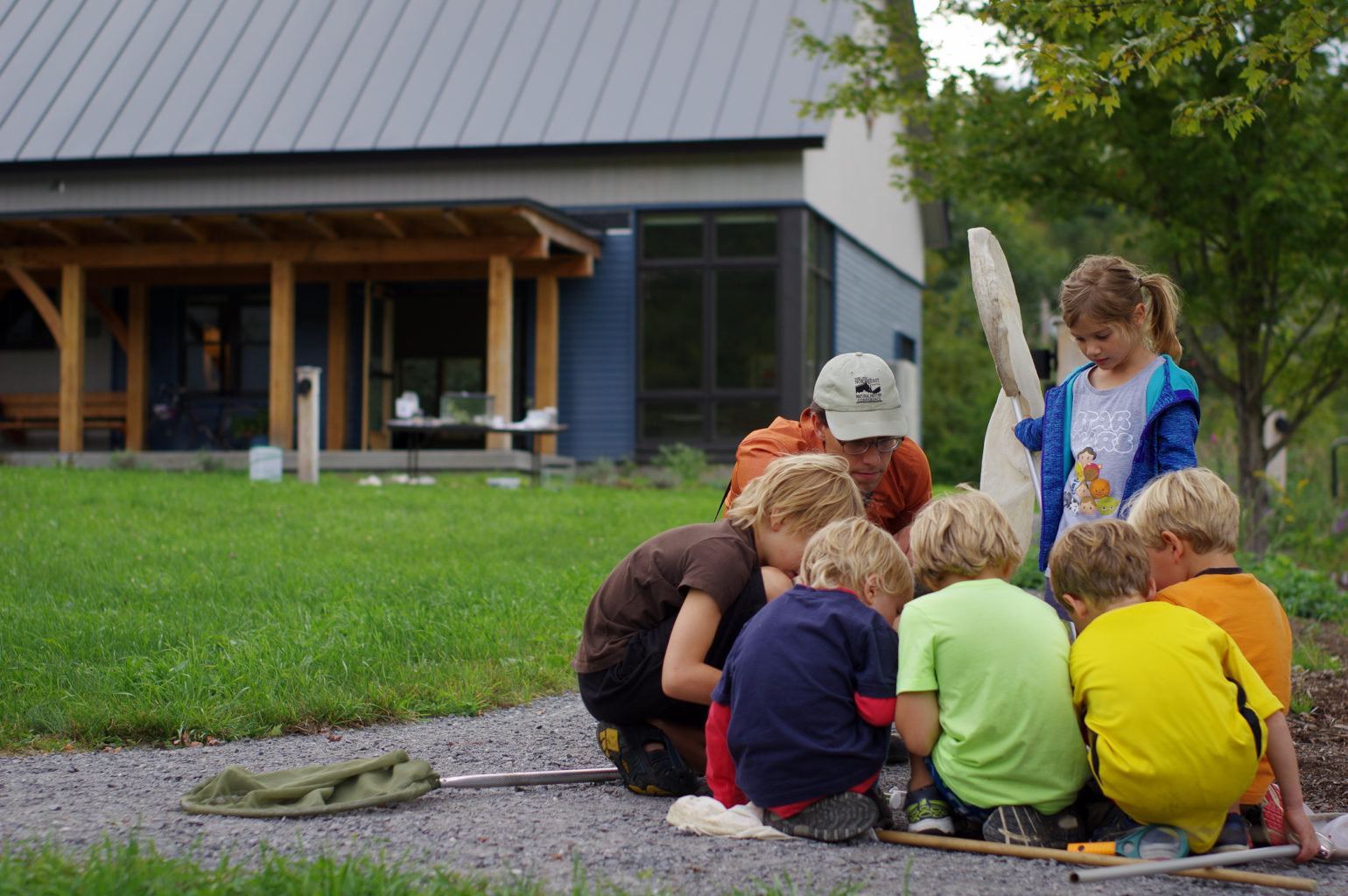NBNC is April’s Hunger Mountain Co-op Featured Community Partner!

By Robert Barossi, Community Relations Assistant Manager, Hunger Mountain Co-op
Re-posted from the Hunger Mountain Co-op Blog
North Branch Nature Center began twenty-three years ago with a staff of just two people. From those early days, the Center has grown to include a team of twelve educators, naturalists, and nature lovers who provide a wide variety of natural history, nature-based education, and citizen science programs to Montpelier and the surrounding communities. North Branch Nature Center is also our featured community partner for April, and we spoke with Staff Naturalist Sean Beckett to learn more about their wide variety of programs.
How would you describe the natural environment surrounding the Nature Center?
Our preserve is a beautiful field bordered by floodplain forest and the north branch of the Winooski River. Though only 28 acres, it is one of the best places in Central Vermont for enjoying birds and biodiversity. Eastern Bluebirds and Tree Swallows nest in tree cavities along the edge of the field. Herons and Kingfishers patrol the shores. Beavers build dams and lodges in side-channels of the river. Signs of fox, coyote, mink, and fisher are abundant. Visitors can sit on our porch in the evening and enjoy the ethereal sky dances of American Woodcocks in the field. Our milkweed patches are thick with monarch caterpillars and butterflies all summer long, and the river is full of dragonfly nymphs and crayfish ready to be investigated.
What is the overriding philosophy behind your nature-based education programs?
Our place-based and inquiry-based philosophy recognizes nature as our most dynamic, enriching, rigorous, and inclusive classroom. Healthy, inspired learning and development depend on immersive, curiosity-driven nature exploration, cultivated by expert teaching and mentorship. From our acclaimed Forest Preschool and Educating Children Outdoors (ECO) flagship programs, to our summer camps, community workshops, and professional institutes, NBNC offers a lifetime of learning and growth through deepened connections with the environment.
What kinds of programs do you have for kids of all ages?
Children can engage with NBNC right from the cradle. Our weekly Robin’s Nest Nature Playgroup brings together families with children 0-5 years old, offering a community experience in nature while modeling how the natural environment can be used as a tool for learning and play. Our state-licensed Forest Preschool offers children 4-6 an exploratory, nature-and-play-based program with indoor and outdoor classrooms that empowers children to be active in their own learning while connecting to one another and the natural world. For elementary and middle school students, our ECO (Educating Children Outdoors) program collaborates with public school teachers in over a dozen different schools to bring classes outside to nearby city parks, public lands, and other local green spaces. Our staff works with teachers to provide weekly standards-based lessons in an outdoor setting. We also offer afterschool programs and summer camps for all ages from preschool through middle school. For those middle schoolers and high schoolers seeking a little more adventure, we even have a young naturalists club that takes overnight trips to explore bogs in the northeast kingdom, watch seabirds in coastal Maine, or even explore the jungles of Costa Rica.
What kinds of programs do you have for adults?
We offer a diverse array of presentations, classes, workshops, and Adventures Afar. Just this spring, for instance, adults can sign up for a birding class, join a botany walk, hear a presentation on pollinator gardening, or travel to Yellowstone. Our Biodiversity University field course series brings regionally-renowned experts to lead weekend-long field courses on topics ranging from mushrooms to mosses to botanical illustration. Our Naturalist Journeys presentation series showcases exciting research and travelogues from biologists working across the world. We also host a chapter of the Vermont Master Naturalist Program to train local residents to be conservation ambassadors right here in the Winooski’s headwaters
How does North Branch define the term “citizen science?” What are the benefits of citizen science programs, to participants, scientists, and the community as a whole?
To us, citizen science is really synonymous with “community science.” There are many important conservation questions that require research and data at scales beyond what a single biologist or graduate lab can produce. Citizen science is a way of using the public to crowdsource that research using fun and simple data collection methods. Our most popular citizen science program is our Amphibian Road crossing Program, where volunteers “adopt” locations where amphibians cross roads during their nocturnal spring migrations. Volunteers monitor nearly a hundred of these crossing sites across Vermont and collectively rescue thousands of frogs and salamanders from car tires. The data our volunteers collect is used to inform road maintenance at the municipal and state level.
What’s the philosophy and objective behind your natural history programs?
A healthy and curious relationship with nature rewards us with delight, astonishment, and perspective on how to live well. Our goal is to cultivate those relationships. We believe that everyone has a natural “entry point” into the natural world. For some, it’s photography, for others it’s history or birdwatching or geology or travel. Our goal is to offer many creative opportunities to connect people with nature, especially those who may not have discovered their entry point yet.
What are some of your most popular outings and presentations?
Our annual summer nature festivals reliably bring hundreds of Vermonters to the nature center for fun and festivities. This summer, our popular BugFest (June 30) and BirdFest (September 7) festivals are back, featuring big lineups of field walks, presentations, kids’ activities, food, games, and more. Last summer’s Montpelier BioBlitz 2018 brought over 500 people into the Montpelier forests and fields for a weekend of fun and scientific exploration. Visitors helped identify over 1,600 different species, some previously undocumented in Vermont.
What is the Vermont Master Naturalist program?
The Vermont Master Naturalist Program began in 2016 in Burlington, and trains residents to become ambassadors of their hometown natural areas. Through a series of natural history training and volunteer service, participants gain a background in geology, botany, tracking, and other skills necessary to interpret the stories and issues in their own backyard. North Branch Nature Center recently teamed up with the Vermont Master Naturalist Program to launch the first year of the Winooski Headwaters chapter. Applications for next year’s program will be open in late fall.
What do you hope the visitor’s experience will be when they come to the Nature Center?
We hope that all who stroll the trails, explore the fields, or play along the river will find a moment of relaxation, tranquility, and natural curiosity. We hope everyone leaves the Nature Center with a new discovery in one hand (though perhaps not literally – do leave the salamanders and wildflowers behind), and a new question in the other. We hope they will leave with a renewed passion for a lifelong pursuit of wonder, curiosity, exploration, and connection, and a heightened responsibility to encourage those pursuits in others.

